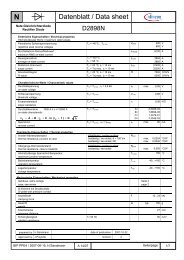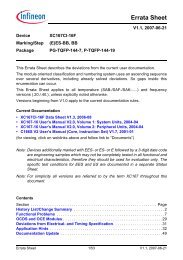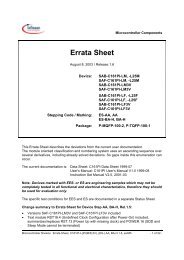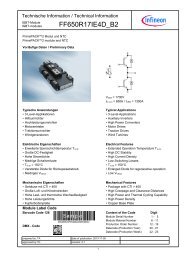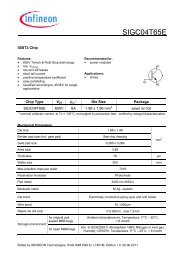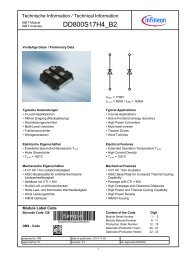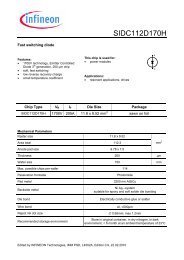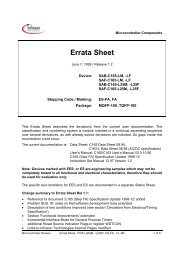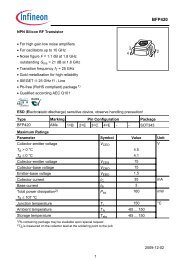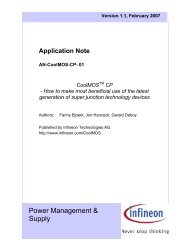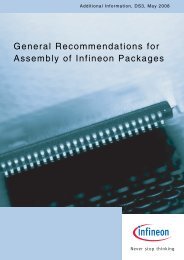Errata Sheet - Infineon
Errata Sheet - Infineon
Errata Sheet - Infineon
Create successful ePaper yourself
Turn your PDF publications into a flip-book with our unique Google optimized e-Paper software.
Workaround<br />
<strong>Errata</strong> <strong>Sheet</strong><br />
Functional Deviations<br />
As described previously, this problem should not be encountered during normal<br />
operation and will only be triggered in the case of a double-bit error being<br />
detected in an access to the on-chip Flash.<br />
However, in order to remove the possibility of encountering this issue, all load<br />
accesses to cacheable addresses within the on-chip Flash should be made<br />
using natural alignment - word transfers should be word aligned, double-word<br />
transfers double-word aligned.<br />
It is also possible to check for the occurrence of this problem by having some<br />
other master, such as the PCP, periodically poll the LBCU LEATT register to<br />
check for the occurrence of LMB error conditions, specifically if one is detected<br />
during a BTR2 read transfer from the DMI, as reported by LEATT.OPC and<br />
LEATT.TAG.<br />
DMI_TC.017 DMI line buffer is not invalidated by a write to<br />
OVC_OCON.DCINVAL if cache off.<br />
A problem exists whereby the DMI line buffer is not invalidated by a write to<br />
OVC_OCON.DCINVAL when operating with the D-cache turned off. This<br />
means that the user cannot rely on a write to OVC_OCON.DCINVAL to make<br />
sure that any stale data in the DMI line buffer is invalidated. This can be a<br />
problem for users who want to use the OVC_OCON.DCINVAL bit to ensure<br />
coherency between the DMI and background memory.<br />
It should be noted that this problem is not encountered when the D-cache is<br />
turned on. When the D-cache is turned on, writing a one to<br />
OVC_OCON.DCINVAL will correctly invalidate all clean cache entries and<br />
invalidate the DMI line buffer. The problem only concerns systems with no<br />
cache or systems where the cache is turned off.<br />
Detailed description<br />
D-Cache turned on:<br />
When D-cache is turned on, the DMI line buffer is only used as a performance<br />
enhancement mechanism with no logical existence to the user. It is therefore<br />
not operating as a micro-cache and the current issue does not apply. When the<br />
TC1767, EES-AD, ES-AD, AD 32/73 Rel. 1.4, 11.12.2009



